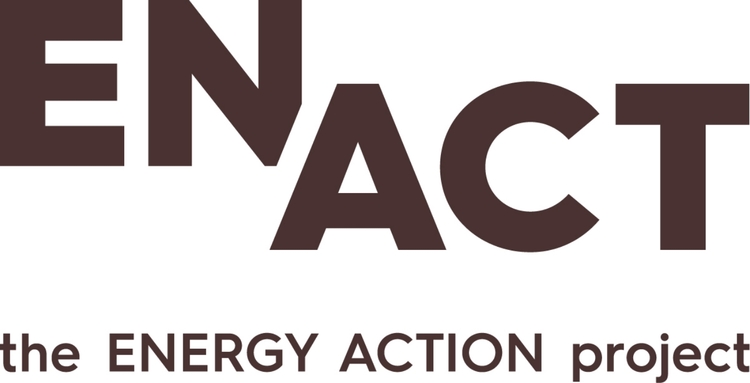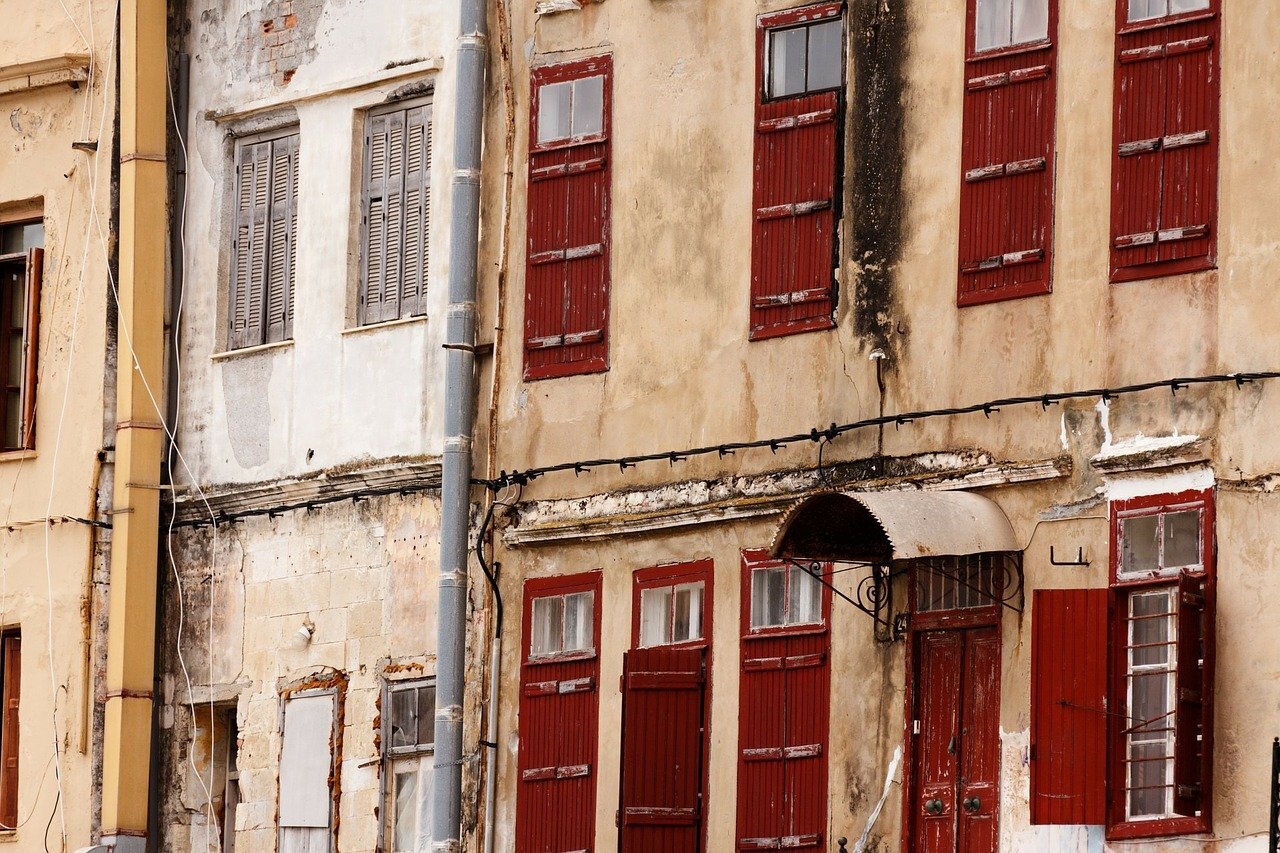Collaboration among stakeholders and inclusion of individual energy consumers are fundamental principles of the Energy Poverty Action Plan for Greece.
With the goal of reducing energy poverty by 75% by 2030, while also boosting local economies and strengthening climate initiatives, INZEB and Heinrich Böll Stiftung Greece recognised the need for a holistic policy approach. As such, they sought inputs from diverse experts to establish social, environmental, energy, energy-climate, and financial targets (Figure 3). Experts agreed on the need for urgent action across three key areas: boosting energy literacy, improving access to financing and ensuring a clean energy transition is also just.
Figure 3 ● Proposed cross-sectoral targets to be included in Greece’s national Energy Poverty Action Plan. (originally presented in the Energy Poverty in Greece 2.0 publication (2019-2020).
Building the energy knowledge of Greek consumers
Helping consumers understand what contributes to their energy consumption, the elements on energy bills and ways to reduce both use and costs is an overarching challenge. To address it, the action plan calls for policy that improves access to and transparency of information.
In the case of billing, complex levies and fees make it difficult for consumers to separate out costs for actual consumption – the aspect of the bill that can most be influenced through energy-saving measures and building upgrades. Government mandates could ensure utility companies design bills that clearly state the breakdown of pricing elements and the sources of energy consumed. Such information could help consumers compare prices among different suppliers and identify opportunities to purchase from utilities that prioritise clean energy.
Similarly, ensuring consumers have and understand EPCs helps them see how poor-quality construction or inefficient appliances drive up their energy use. This enables them to better plan for building upgrades or see the value of purchasing new appliances. An EPC can also serve as a strategy document that shows the ‘pay-back’ potential of such measures, which could help households access financing (see below).
Recognising that different groups have different information needs, the proposal highlights finding ways to deliver trusted content via diverse formats and channels. – e.g. in person at home, through easy-to-access public information points (i.e. energy information kiosks), by phone or on-line, and through public events. Home visits by energy efficiency advisors, for example, can ‘show and tell’ residents how to reduce energy costs in their unique circumstances. Advice might cover topics such as how to read smart meters or switch energy suppliers.
Municipalities and universities can get on board by hosting events to boost awareness of local energy challenges and community solutions. The proposal also emphasises the need to start building energy literacy at a young age: it suggests energy-focused curricula for primary and secondary schools to boost general knowledge and promote energy-efficient behaviours by students and their families. Given Greece’s diverse climates, building region-specific energy knowledge is vital.
Financing deep energy efficiency interventions
As is seen across the EU, many people in Greece – especially energy-poor households – lack the financial means to cover up-front costs of renovations or have poor credit, making it difficult to secure financing. That most Greeks live in apartment buildings is a particular challenge that creates something of a Catch-22. On the plus side, it is more financially efficient to upgrade a large building than individual homes. However, unless all individual apartment owners agree to participate in the whole building renovation, there is little any one family can do.
Energy efficiency upgrades on apartments are also more financially efficient than those for individual homes. Photo: Public Domain
Government can play a strong role in incentivising energy efficiency upgrades by establishing cohesive policy instruments that target the barriers not only of those affected but by key actors in the solutions space. In one example, the city council in Nottingham, UK, established a non-profit organisation to secure affordable energy for vulnerable residents. Additionally, by collaborating with public organisations and energy providers, the city monitors and helps secure funding for energy efficient renovations.
‘Saving at Home’, a national scheme designed to subsidise energy efficiency renovations fell short of its targets, in part because it notoriously difficult to access due to excessive bureaucracy. Centrally financed by credit institutes, the scheme was ill-suited to those most in need – i.e. vulnerable families with low credit. Also, residents of apartments and housing blocks noted particular difficulties obtaining funding. A new 10-year programme, known as Εxikonomo-Autonomo (i.e. ‘I am saving – I am becoming autonomous’) offers simpler procedure. However, the online application process is based on a ‘first come, first served’ basis and has no specific provision for giving priority to houses in poor condition.
On the financing side, lending institutes have little interest in managing a large number of small loans that they consider high risk. Policies that enhance collaboration between banks and renovations companies, for example, could aggregate multiple small loans and effectively split the risk across more players (i.e. the bank, the renovation company and several individual households). This could improve access to lower-risk financing for companies and vulnerable groups and make the financing more cost-efficient for lenders.
For renovation companies, policies that offer energy service or building material discounts, or tax incentives, can reduce costs and strengthen the business case, provide the lending institution with greater confidence. Another option is policy schemes that enable renovation companies to prioritise large-scale and cost-efficient upgrades on large apartments blocks.
Building stock in Athens. Photo: Kookay
For homeowners, recent schemes that link energy renovation financing to mortgages – or to lower interest rates – show that once their homes are more efficient, having more disposable income means borrowers are less likely to default.
Effective communication about policy options is vital to raising awareness of cost-efficient approaches and building trust among actors.
Transitioning everyone to clean energy
Finally, cohesive policy to finance and build renewable energy systems is critical to ensuring a clean energy transition in Greece is also just.
Some regions of Greece – including cities such as Kozani, Ptolemaida, Amyntaio where winters are severe – have been heavily dependent on local coal (lignite) resources for electricity and affordable district heating. A national plan to rapidly transition away from coal will all but one coal-fired power plant, which are owned by the Public Power Company (PPC) closing by 2030. At present, the alternative being discussed is to fuel such systems with natural gas – which is ‘cleaner’ but not without emissions.
Kastoria, Greece, in winter. Photo: Photos_kast
Renewable energy communities, supported through legislation passed in 2018, have been shown to be an effective mechanism to boost renewables and reduce energy poverty – but achieving both is not a given. The current legislation distinguishes between for-profit and non-profit energy communities, based on the definition of members and management of excess energy.
Profit-based communities typically require an initial investment, which may exclude vulnerable households. Non-profits, many of which operate at municipal or neighbourhood levels, specifically aim to self-generate as a means of providing low-cost renewable energy to members. Many offer microlending or gradual loan repayment schemes to support the participation of all households. One example, the Energy Cooperative of Karditsa (a city on the Greek mainland) demonstrates how a smart energy system can optimise local resources – in this case, wind and locally produced biomass pellets – for its 400 members.
To broaden mechanisms to support a just transition, INZEB and Heinrich Böll Stiftung Greece propose innovative financial programmes to empower individual households to become ‘prosumers’ who generate and use their own energy. Key instruments include:
· Tax relief for companies supplying and/or installing renewable energy systems.
· New loans for renewable energy system installations.
· An improved ‘Saving at Home’ programme to install renewable energy systems – at no cost – in the most vulnerable households.
Greece’s diverse climate, along with infrastructure challenges posed by its numerous islands, necessitate region-specific planning to achieve a just, clean energy system. In combination, energy cooperatives and individual installations can increase the overall share of renewables in the national grid, in turn providing better access to affordable clean energy. Clear and consistent regulation of community and individual renewable energy production is key to building trust among residents and businesses offering installation and/or energy services. To this end, it is also important to highlight the social impact of energy communities in contrast to individual energy producers and big companies.




